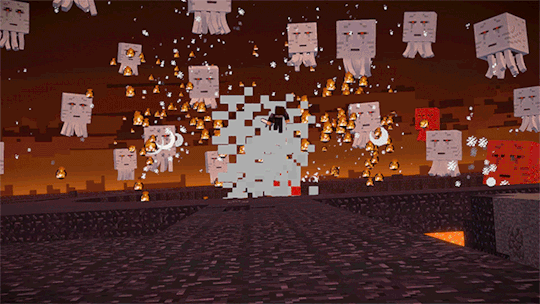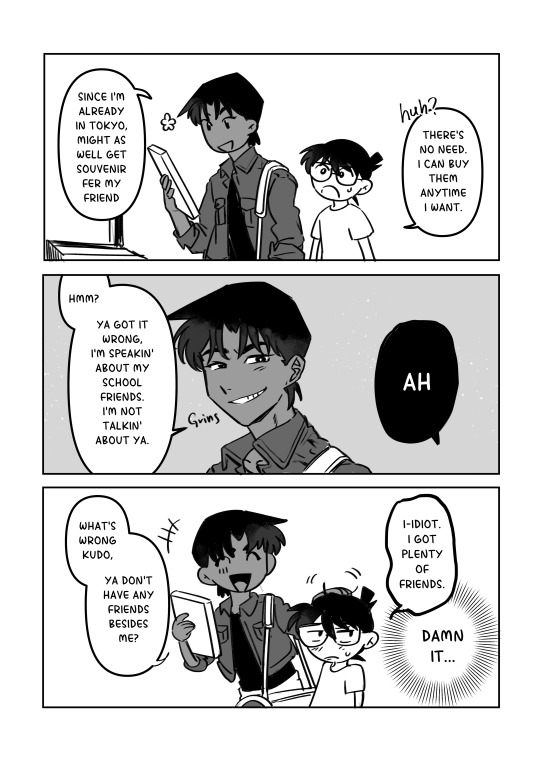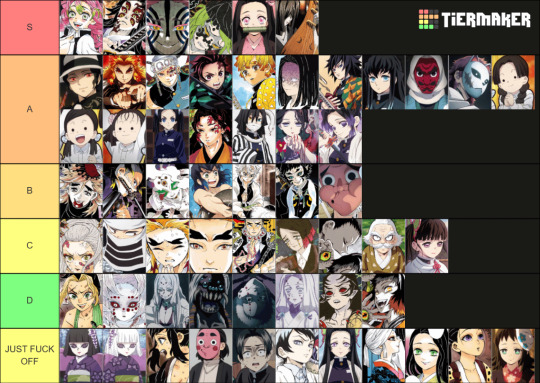#likeability
Explore tagged Tumblr posts
Text

According to favorability ratings at 538, Kamala Harris is now above water. In other words, a higher percentage of people have a favorable opinion of her than an unfavorable opinion.
Donald Trump is still significantly under water. In fact, he's had a net unfavorability rating since he left office.
The problem is that some people will support Trump even though they think he's a dick. However, there IS a limit as to how much people will vote for somebody they don't like.
We should keep pushing the envelope to drive up Trump's unlikeability. While you may get pushback when making a negative comment on Trump's policies (such as they are), you're less likely to get into an argument when commenting negatively about him personally. Making such comments funny will enhance their effect.
We need to sow doubt any way we can in undecided and slightly pro-Trump voters one person at a time. Contrary to popular belief, people don't vote in blocs – they vote individually.
#kamala harris#kamala favorability#538#donald trump#weird donald#trump favorability#likeability#election 2024#vote blue no matter who
19 notes
·
View notes
Text
okay I think I don't like ana lucia actually.
#she's kind of um. aggressive and annoying#she's the tail section people's jack but without any of the...#likeability#PERSONALLY#but maybe it's the internalized sexism. that happens to me sometimes#but yknow. she shot shannon. also she's being really angry and aggressive in this like backstory bit#whatever#we'll see if it changes#lost#lost 2004#jennie watches lost
9 notes
·
View notes
Quote
This is why it’s not surprising that Harris does comparatively better in favorability ratings than in head-to-head polls — and also why I don’t particularly think there’s any reason to expect that gap to close. Her message is: I’m a likable person, and I’m not Trump, and you’ll just have to trust me to sort out the details. His is: I’m an asshole who fights for you, and here’s a bunch of stuff you’ll get if you vote for me. It’s the Billboard Lawyer message — and there’s a 53 percent chance it will work.
Likability isn't enough - by Nate Silver - Silver Bulletin
4 notes
·
View notes
Text
hate when people think the only archetype possible for a male sidekick to a female protagonist is a soft boi and/or himbo. like the implication there is that the only reason a man would ever defer to a woman’s authority is if he was a bumbling idiot. love male supporting characters who are smart and strong and confident and can step up when necessary but still kind and humble enough to let someone else take the lead most of the time
#peach rambles#yes i know it started as a hashtag feminist subversion of gender roles#however. it’s been long enough. it is its own trope now. and it is tired now#try a different angle#if you ever want to inspire men to forgo being a leader and let a woman take charge irl#you have to demonstrate that men can be cool and likeable and strong while in a supportive role#otherwise they see it as an insult that no true man should ever have to suffer#hall of fame i guess
32K notes
·
View notes
Text
New Substack Post
Writing Likeable Characters . . . Or Not https://open.substack.com/pub/brettriley/p/writing-likeable-characters-or-not?r=64zpu&utm_campaign=post&utm_medium=web&showWelcomeOnShare=true
0 notes
Text
Happy Amok Time Day, friendly reminder that Theodore Sturgeon, the writer of the episode, is credited with the first positive portrayal of homosexuality in science fiction with his short story The World Well Lost (1953), 14 years before Amok Time aired. Which could mean nothing.
#please read it tho it’s online and it’s soooo good#heartbreaking.#devastating.#but incredible#and a very quick read too#it’s also funny because like. the characters are very similar to Kirk and Spock just like less likeable versions#which again. could mean nothing.#anyhow I think it adds a very neat layer to amok time#star trek#spirk#tos#amok time#the world well lost#theodore sturgeon#sci fi
5K notes
·
View notes
Text
Bro why is the camera work in the actions scenes in Jonh Wick 4 so like. Mid.
Bro got the rights to JOHN WICK with that BANGER SONG and managed to not make the action scene great. Like please move the camera and stop cutting with such a low pace cmon I wanna SEE ACTION yk
#the rare script criticism#i only critique big multimillion works bc godamn bro#not to be a hater but yall gotta watch more anime#hot take: watch anime stop being a coward there is so much to learn from them#people like “oh its cringe” shut up#shut up actually#because even if u dont like the medium and dont work with it theres so much to learn from them#themes like izekai#shit like shonen#action#power balance#likeability#so much#starts watching anime yall cowards#script shut up
0 notes
Text
DUDE the minecraft movie trailer pisses me the FUCK OFFFF DUDE IT LOOKS SO BAD 😭😭😭😭 this is why minecraft story mode is PEAK everyone should play mcsm 💚💚💚it’s the best Minecraft movie yall will get that isn’t that live action slop with jack black🙏🔥🔥
Anyways I’m reallyyy upset that the mc movie is going to be LIVE ACTION of all things.. the movie being live action just takes away the entire charm of Minecraft it just doesn’t WORK in my opinion and it sucks that we have two really good Minecraft 3d animation styles to work off of 💔💔


I’ve said this so many times but a 3d Minecraft movie would have just worked so much better??? Especially looking at some of the amazing 3d animated movies we’ve gotten in the last couple years
#Minecraft#mcsm#minecraft story mode#cosmic rambling#Minecraft movie#also I just don’t like Jack black and the characters from the mc movie trailer don’t seem that likeable…😭
5K notes
·
View notes
Photo








Rhinoceros dung beetle, Oxysternon conspicillatum, Scarabaeidae
Found primarily in northwestern South America
Photo 1 by tshahan, photos 3-4 by mayk, 5-6 by almeidads, and 7-8 (female) by scibugs
#animals#curators on tumblr#insects#bugs#beetle#scarab beetle#dung beetle#rhinoceros dung beetle#one nice bug#extremely likeable face
1K notes
·
View notes
Text

It seems there's a new lawyer in town!!!
#I think she's one of the most underutilized characters ever I will DIE on this hill#she can hear people's feelings that is the COOLEST concept ever#you get people who can hear thoughts a lot and that's cool but hearing FEELINGS is such a sick and unique concept#AND SHES A LAWYER#THATS THE COOLEST CAREER YOU COULD GIVE SOMEONE WHO CAN HEAR FEELINGS THAT OPENS DOORS FOR SO MANY GOOD STORIES#I'D LOVE IN AA TO PLAY CASES AS HER WHERE YOU HAVE TO WORK BACKWARDS FROM PEOPLE'S EMOTIONS TO FIGURE OUT MYSTERIES#IT'S A WHOLE NEW SIDE TO THE EVIDENCE#AND SUBTLE HIDDEN FEELINGS KEEP GUIDING HER AND PPL JUST CANT KEEP UP WITH HOW SHE WORKS... STUFF LIKE THAT WOULD BE INTERESTING#WHY ISN'T IT UTILIZED WHY DO WE JUST HAVE PSUEDOSCIENCE MINIGAME#ATHENA IS SO LIKEABLE AND CHARMING AND FULL OF LIFE TOO#PLEASE CAPCOM#I LOV E HER PLEASE#GIVE US A CRAZY MOMENT WHERE SHE TAKES PHOENIX ASIDE HALFWAY THROUGH A CASEAND TELLS HIM HIS CLIENT WAS JUST ELATED AT THE SIGHT OF A CORPS#OR DO IT IN THE GAMEPLAY WHERE THE PLAYER SPOTS IT IN THE MOOD MATRIX#omg yeah actually that'd make me shit my pants that'd be so cool#proper ghost trick moment#THERE'S SO MUCH COOL STUFF YOu can do fuck okay sorry there are so many tags now#can you tell I got feelings abt this character I LOVE HER so much Im in love w her tbh and she's also so me#ace attorney#athena cykes#my art#have a good day thanks for looking at my art haha
3K notes
·
View notes
Text
the term fandom is so misleading because with supernatural I‘m not a fan, I‘m an addict, a victim if you will. no matter how hard I try that shit show gripped me tight and pulled me into perdition and my sanity is on a hunting trip and hasn‘t been home in a few days.
#supernatural#destiel#the brainrot is rotting disgustingly#dean winchester#misha collins#i blame him#why is he so likeable and unhinged
4K notes
·
View notes
Text

cute misunderstanding
#dcmk#dcmk fanart#heishin#hattori heiji#i like it when shinichi kinda look down on heiji's likeability/popularity ^_^
677 notes
·
View notes
Link
From the July 19, 2023 article:
Tim Scott posts some of the highest favorability ratings in the presidential primary field. He’s well liked by donors and the conservative media, and with Ron DeSantis sputtering, he appears to have an opening.
There’s just one problem: so far the GOP electorate ain’t buying it.
In interviews with a dozen strategists and pollsters, terms like “affable,”and “optimistic” came up repeatedly.
The description that did not come up often was “president.”
...
While a light disposition can go a long way to winning over voters, ... GOP primary voters seem to relish aggression from a prospective nominee, said Jeff Kaufmann, the Iowa Republican Party chair.
“Everybody at some point in time is going to have to, if not throw a punch, throw an elbow,” Kaufmann said. “And they’re going to have to land.”
2 notes
·
View notes
Photo

Made My tier list based on likeability , Meme by Weeblmao.com
#Based#DSMemes#KimetsuNoYaiba#KimetsuNoYaibaMeme#KimetsuNoYaibaMemes#KNY#KNYMeme#likeability#list#tier
0 notes
Text


little gentleman who pretends not to be a freak
#qkdraws#id in alt#wind breaker#suo hayato#eyestrain#genuinely can't decide if sakura's my fav or suo . i think they're tied#they're just both so fascinating in completely different ways and the fact that suo himself is a little fascinated by sakura makes it bette#and i think sakura is fascinated by suo too. he's Curious for sure#idk man suo is just so likeable. there's smth abt him. i usually don't like his archetype that much but he's kinda drivin me crazy#what a good character. i hope we get some of his backstory cuz so far we've got like.3 crumbs
475 notes
·
View notes
Text

I finished playing the prologue he's my 2nd favorite. I want to lock them in a room together
#myart#the hundred line#hundred line last defense academy#gaku maruko#yugamu omokage#yugaku#my no 1 is actually reallt predictable#i ended up getting attached to gaku out of sheer necessity#ALSO THIS IS MY PSA TO TRY PLAYING THE GAME W THE JAPANESE DUB BECAUSE YUGAMU IS A COMPLETELY DIFFERENT GUY#and gaku gets a lot more likeable because he just sounds less whiny
403 notes
·
View notes